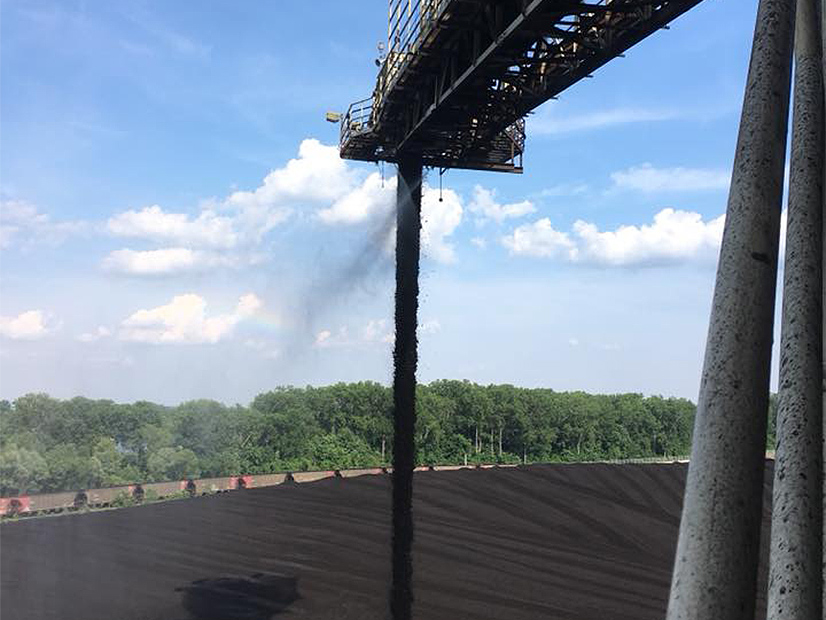FERC on Monday approved an agreement that will keep an Ameren Missouri coal plant online beyond its planned retirement date to maintain MISO grid reliability (ER22-2691).
In a separate order, the commission also said that Ameren might be overcharging customers to keep the plant operating and set the matter to hearing (ER22-2721).
MISO in August filed a 12-month system support resource (SSR) designation for the 1.2-GW Rush Island plant’s two units. The grid operator said that its analysis found “no alternative available at this time to avoid the need” for an SSR agreement and said that without the agreement, it could face severe voltage stability issues that might set off cascading outages.
MISO uses SSR agreements as a last-resort measure to sustain system reliability. It said it explored generation additions, dispatch changes, system reconfiguration, operation-guideline changes, amplifying demand response or load reductions, and adding new transmission projects, all to no avail.
The Illinois Municipal Electric Agency and the Wabash Valley Power Association lodged protests at the commission, alleging that MISO’s consideration of alternatives to the agreement was unsatisfactory. The commission said the grid operator properly arrived at a “determination that no feasible alternative exists at this time that could be implemented to allow suspension of the Rush Island Units by the requested September 1, 2022, suspension date.”
FERC found that both Rush Island units are necessary despite the stakeholders’ claims that one unit will suffice. The commission said MISO’s retirement study showed transient voltage recovery issues that would violate both NERC standards and Ameren’s local planning criteria and “pose a risk to the St. Louis metro area and Peoria, Ill.” It concluded the RTO presented “sufficient support” for the SSR agreement through next summer.
However, FERC agreed with Wabash Valley and Illinois Municipal that Ameren’s proposed $9.3 million monthly SSR payment could be too steep and ordered a hearing with possible refunds. The commission also rejected Ameren’s inclusion of a 50-basis point return-on-equity adder in the monthly payment calculation, saying the ROE adder for RTO membership is reserved for transmission owners, not generation facilities.
In the interim, MISO will assign proposed SSR costs associated with the Rush Island units to load-serving entities that require their continued operation.
Ameren last year fast-tracked the plant’s closure rather than install a court-ordered wet flue gas desulfurization system by March 31, 2024, to correct Clean Air Act violations. The utility originally intended to operate Rush Island until 2039, but the 2019 ruling from the U.S. District Court for the Eastern District of Missouri cut its plans short (19-3220).
Rush Island’s units date back to 1976 and 1977. Together, they currently emit approximately 18,000 tons of sulfur dioxide annually.
MISO recommended in this year’s transmission planning cycle $120 million of new static synchronous compensators to reinforce the system with Rush Island’s retirement. Those transmission solutions aren’t expected to be in-service until mid-2025, making it likely that the grid operator will renew the SSR, which it can do on an annual basis. However, the RTO has committed to a yearly re-examination of alternatives to the SSR. (See MISO’s 2022 Tx Planning Cycle Exceeds $4B.)




